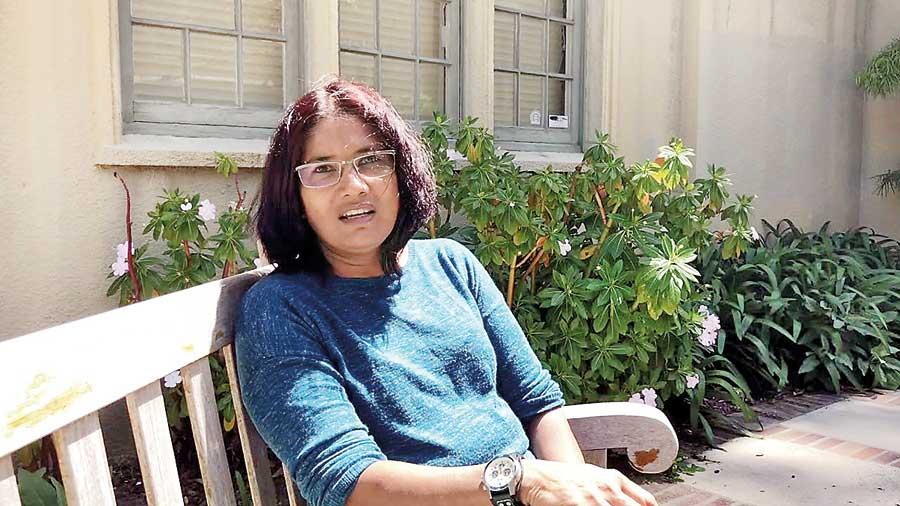26 Jul 2021 - {{hitsCtrl.values.hits}}

Dr Janaki Jayawardena
- Dr Jayawardena spoke on the impact of colonialism on identities in Sri Lanka
- She noted that diversity is a co-existence of different practices, norms and rituals, and respect for such difference which existed in ancient times
- The communities of the past experienced shared cultural aspects which are sometimes hard to decipher in modern times, given the nature of their existence at that time
- She explained that the colonizers could not understand the country
- Although Sri Lanka has democratic institutions, the country is not democratized as yet
The Sri Lankan Understanding, is geared towards exploring the path taken by Sri Lanka, an island nation in the Indian Ocean, which has experienced a vivid past and possesses the potential for a vibrant future. Bringing together academics, historians, diplomats, writers and key personalities, The Sri Lankan Understanding is aimed at filling a lacuna in society wherein comprehending that which has been, grasping realties, and understanding the opportunities ahead is sorely lacking.
Indian Ocean, which has experienced a vivid past and possesses the potential for a vibrant future. Bringing together academics, historians, diplomats, writers and key personalities, The Sri Lankan Understanding is aimed at filling a lacuna in society wherein comprehending that which has been, grasping realties, and understanding the opportunities ahead is sorely lacking.
The seventh episode on ‘Identity Politics, Nationalism and Gender in Sri Lanka’ featured Dr Janaki Jayawardena, Senior Lecturer in the Department of History at the University of Colombo. An alumnus of the University of Peradeniya, she read for her doctoral studies in Women’s Studies at the University of York. Recipient of numerous prizes in academia, Dr Jayawardena was awarded a Commonwealth scholarship and has presented academic papers in Sri Lanka, Germany, Nepal and Norway.
Discussing the nature of diversity on society, Dr Jayawardena pointed out that diversity itself is a misunderstood concept, wherein plurality and diversity are said to consist of compartmentalised cultures and communities. She noted that diversity is a co-existence of different practices, norms and rituals, and respect for such difference which existed in ancient times. The communities of the past experienced shared cultural aspects which are sometimes hard to decipher in modern times, given the nature of their existence at that time. She highlighted patterns of attire, not only in Sri Lanka but also elsewhere in South and South East Asia where similar patterns have been found. Furthermore with fluidity in attire there was much sharing, and this led to respect.
Dr Jayawardena spoke on the impact of colonialism on identities in Sri Lanka and pointed out that terms used even at present to refer to certain communities did exist in the pre-colonial and colonial period but the question is whether they possessed the same meaning. This, she said was constantly contested owing to interpretation and views, but it was quite clear that pluralism did exist in these eras. Identities, she inferred were thus reconstituted in the British colonial period. She explained that the colonizers could not understand the country and in order to ensure their rule they used their own techniques which were prevalent in Europe during this period. Providing the examples of mapping, categorizing and classifying, Dr Jayawardena said the census and other mechanisms were used to derive new knowledge.
Delving into the concept of nationalism, Dr Jayawardena referred to early studies that maintain that a prototype nationalism existed. This had been derived through the study of the Mahawansa. However, until the British colonial period there was an absence of a nationalist movement per se but there were religious revivalist movements in the 18th and 19th centuries which she claimed perhaps paved the way for Sri Lankans to think of unity among groups. Furthermore when the Colebrooke-Cameron Commission suggested a parliamentary type of governance they highlighted the need for curbing the power of the governor and instead for the transferring of power to an assembly which would look into the needs and interests of people in the country. This led to the use of race as a basis for election of prominent members of society. Dr Jayawardena maintained that this violated the suggestions of the Commission.
Elaborating on the role of gender, Dr Jayawardena referred to the writings of Prof. NiraWickramasinghe and the manner in which the British prescribed forms of attire for official ceremonies to represent ethnicities. Whilst these customs evolved over a period of time, she noted that early 20thcentury literature observed that men were expected to develop the country while the preservation of culture was in the hands of women.
This was seen as collective contributions to the nation. Thus efforts were undertaken to highlight the differentiation between men and women.
Focusing on the future, Dr Jayawardena said the main lesson to be learnt from the past was to understand it. She stressed that although Sri Lanka has democratic institutions, the country is not democratized as yet, which has occurred due to the forms of interpretation of what potential this country had in the past. She pointed out that there is much misinterpretation of the past and more discussion is needed at all levels of society to comprehend the country and her trajectory.
The Sri Lankan Understanding which is geared towards generating an interest and intrigue in the multifaceted aspects of the country is aired every Wednesday, with repeats on Thursday and Sunday on HiTV and is available on Youtube. The programme is for those keen on gaining a clearer perception of the historic features, and prospective facets of the pearl of the Indian Ocean, as it covers a gamut of issues.
26 Nov 2024 3 hours ago
26 Nov 2024 4 hours ago
26 Nov 2024 5 hours ago
26 Nov 2024 6 hours ago
26 Nov 2024 6 hours ago